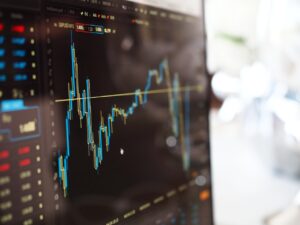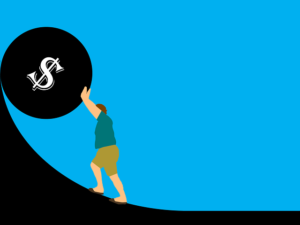 Navigating Debt and Tariffs in a Global Economy
Navigating Debt and Tariffs in a Global Economy
When we talk about debt, most people think of things like credit cards, medical bills, or car loans. But global trade policies—like tariffs—can also affect your personal finances. It might seem like something only economists or business owners worry about, but personal debt and tariffs impact each other.
As a result, changes in the global economy can have an immediate impact on your family’s finances. Rising tariffs can lead to higher prices on everyday goods and, over time, push more people deeper into debt.
As a bankruptcy lawyer here in Memphis, I’ve seen how outside forces—like inflation, interest rate hikes, and yes, even tariffs—can strain household budgets and lead people to consider bankruptcy as a path to relief. Here’s what you need to know.
 What Are Tariffs, and How Do They Affect You?
What Are Tariffs, and How Do They Affect You?
A tariff is a tax placed on imported goods. When the U.S. government imposes tariffs on products from other countries, it raises the cost for companies to bring those goods into the country. To cover those extra costs, companies often raise their prices—and those price hikes get passed on to you, the consumer.
This means that everything from groceries and clothing to electronics and household goods can end up costing more, especially if those items are made or assembled overseas. You may not notice a big difference right away, but over time, those price increases can add up—especially if you’re already living paycheck to paycheck.
Supporters of recent tariffs see them as an effective tool to encourage companies to bring manufacturing back to the United States. By making imported goods more expensive, tariffs help level the playing field for American-made products and could support long-term economic growth. They can also reduce reliance on foreign supply chains and strengthen national security.
In the long run, if they’re right, that could mean more jobs and manufacturing. But regardless, the short term impact could still cause financial stress for a lot of people.
How Tariffs Can Lead to Personal Debt
When everyday costs rise, many people turn to credit cards or personal loans to cover the gap. It’s a short-term solution that can easily spiral into long-term debt. If you’re already juggling monthly payments and then prices go up because of tariffs or inflation, your budget might not be able to handle it.
Here’s how it plays out for many families:
- Grocery bills get higher
- Utility and fuel prices rise
- Essential items like clothes, appliances, or tools become harder to replace
- You start relying on credit to make ends meet
- Interest adds up, and soon you’re only making minimum payments
Before long, you’re stuck in a cycle of debt that feels impossible to break.
This may be especially true for a lot of American families at this moment, as credit card debt is already at an all-time high.
 The Connection Between the Stock Market and Personal Bankruptcy
The Connection Between the Stock Market and Personal Bankruptcy
I’ve written before about the impact of the stock market on everyday Americans. A market downturn can shrink retirement accounts, investment portfolios, and even home values. And that might leave you with fewer assets than you thought you had.
If you were trying to hold off on filing bankruptcy in hopes that your investments would bounce back, a significant drop might change the equation.
In some cases, it may actually be better to file when your assets are worth less, because it could make you eligible for Chapter 7 when you might not have qualified otherwise. Plus, filing before things get worse can help protect what you do have and stop creditors from taking further action.
One thing I always try to remind people – especially retirees and people close to retirement – is that they should never spend out of their limited and precious retirement funds to cover personal debt, if possible. There are other choices that won’t devastate your future.
If you’re unsure how a market shift affects your situation, now’s a smart time to speak with a bankruptcy lawyer and explore your options.
 What Can You Do About It?
What Can You Do About It?
While most of us can’t control trade policy or global economics, you can take control of your personal financial situation. If you’re finding it harder and harder to make your payments, and your debt is growing faster than you can manage, bankruptcy might be a smart option to consider.
Filing for bankruptcy doesn’t mean you’ve failed—it means you’re taking action to protect your future. It can help you:
- Get rid of unsecured debt like credit cards and medical bills
- Stop creditor harassment and lawsuits
- Free up your income to cover rising living costs
- Rebuild your financial stability
- Save your investments and retirement accounts
 Don’t Wait Until It Gets Worse
Don’t Wait Until It Gets Worse
You’re not alone if rising costs have pushed your budget to the limit. Many hardworking people across Memphis are facing the same challenge. If you’re drowning in debt because of factors outside your control – including the complicated current economy – there is help.
Contact us today for a free consultation. As a Memphis bankruptcy attorney, I’m here to listen, explain your options, and help you make a plan to get back on your feet.
For decades, we’ve helped thousands of people deal with their debt in ways that set them up for a better future. We offer support for life after bankruptcy, and we can help you navigate the ups and downs of whatever comes next.
Let’s talk about how you can take control of your debt and start fresh—no matter what’s happening in the global economy.

